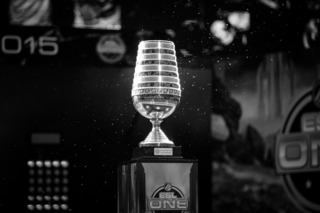
Three weeks ago, the ESL (Electronic Sports League) announced that it would be cracking down on performance enhancing drugs--an announcement we discussed on that week's Beastcast. This decision came on the heels of an interview with a prominent Counter-Strike: Global Offensive competitor who admitted that he, his team, and many other tournament players, used Adderall to enhance their skills. While the ESL's initial announcement laid out the league's reasons for increased enforcement and their general philosophy, specifics were lacking. Until now.
Anna Rozwandowicz, the ESL's head of communications, outlined the particulars of their new policy in a post on the Counter-Strike: Global Offensive subreddit last night. Here's a breakdown of the big points:
- Testing will begin at ESL One Cologne, the largest CS:GO tournament in the world.
- For this event, testing will be randomized. But the ESL notes that it does not "want to exclude the possibility of performing a larger number of tests among all/majority of players at a later stage." So we'll see how this shakes out.
- The ESL will be using the same list of prohibited substances that the World Anti-Doping Association and the National Anti-Doping Association (of Germany) use, available here. It's a fairly comprehensive list, banning a wide swath of stuff, including human growth hormone, anabolic steroids, and (most relevant to eSports) stimulants like phenethylamine, which is found in Adderall.
- There is one stand out on that list: "CANNABINOIDS." Yeah, weed is prohibited as a performance enhancing drug. But the ESL clarifies that "recreational use of it outside (before) the event days will not be punished."
- Part of the reason that the ESL can make that claim is that they'll be using saliva testing, which apparently only shows signs of marijuana for 12-24 hours after use. Huh!
- A major sticking point for in the conversation around eSports drug testing was the question of players with prescriptions for their medical stimulants. According to this announcement, those players will continue to be able to use that medication so long as they disclose that information "no later than the first match is scheduled to start," and provide proof (like a letter from their physician.)"
- If a player tests positive, there's a range of possible punishments available to levy against them: point and prize money deductions, disqualification, and even a two years ban from the ESL.
I definitely understand why eSports organizations like the ESL need to get some sort of anti-doping policy in place. Regardless of your own position on drug use and performance enhancement, the fact is that for eSports to continue to grow, it needs to sell itself to broader audiences and to present itself as legitimate and above board. As prize pools get bigger and bigger, so does the risk of outrage at a potential doping scandal. If you're the ESL, you'd hate for a potential fan to find out about eSports from a headline damning the organization's lack of drug regulations.
But part of me is a little skeptical. When the prize pools are this big, there's a lot of incentive to find loopholes in a policy like this. I'm especially curious about the ESL is prepared to determine the "legitimacy" of a player's prescriptions. It's a real minefield, but it's one that eSports has to cross sooner than later.